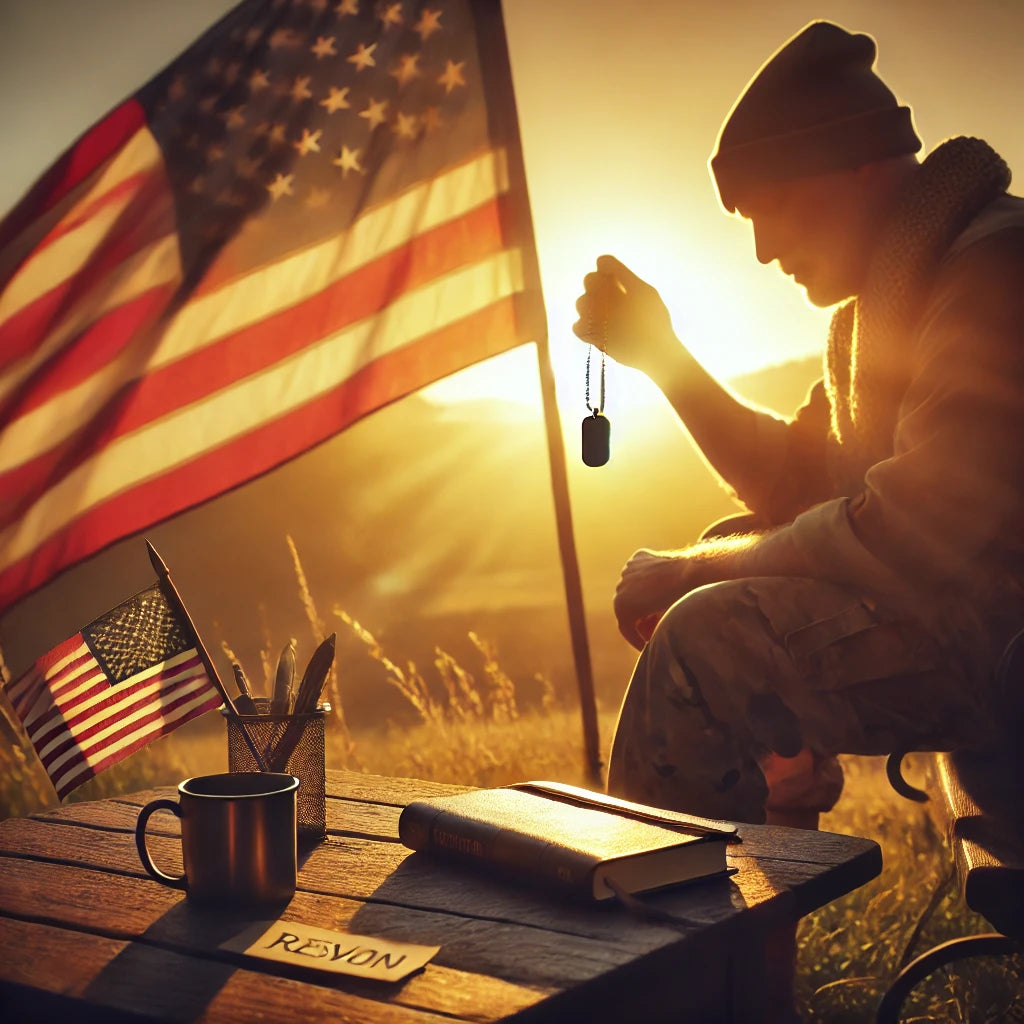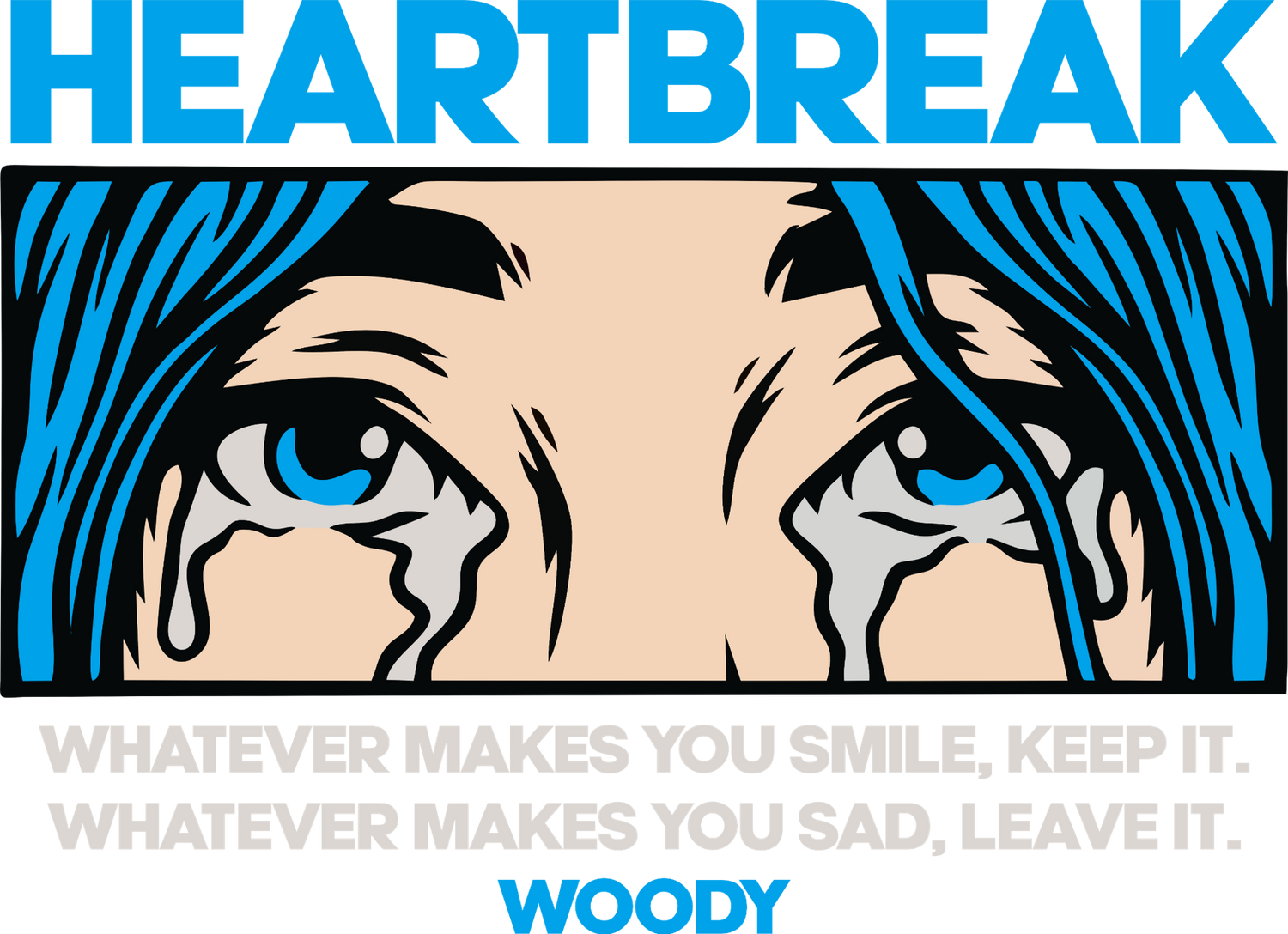
How Veterans Are Redefining Strength by Prioritizing Mental Health
Share
How Veterans Are Redefining Strength by Prioritizing Mental Health
Strength has always been a core value in the military—physical strength, mental toughness, and the ability to persevere under extreme conditions. But for many veterans, the true test of strength comes after their service ends. It’s about facing the invisible wounds that don’t go away when the uniform comes off. It’s about acknowledging the toll of service on mental health and finding the courage to seek help.
As a veteran myself, I’ve learned that strength isn’t about pretending you’re invincible. It’s about recognizing when you need support and taking steps to care for yourself. For years, I thought asking for help was a sign of weakness. I told myself I should be able to handle everything on my own. But the truth is, prioritizing my mental health has been one of the strongest, most transformative decisions I’ve ever made.
The Mental Health Challenges Veterans Face
Veterans face a unique set of challenges that can take a significant toll on their mental health. These difficulties don’t end when their service does—in many cases, they intensify during the transition back to civilian life. Let’s explore these challenges and their ripple effects:
PTSD and Trauma
Post-Traumatic Stress Disorder (PTSD) is one of the most common mental health challenges veterans face. Up to 20% of veterans from recent conflicts like Iraq and Afghanistan experience PTSD in a given year, and for Vietnam veterans, that number rises to 30% (VA.gov). PTSD stems from exposure to life-threatening events, violence, or other traumatic experiences during service.
Cause:
The hyper-vigilance required in combat environments rewires the brain to remain in a constant state of alert. For veterans, the return to civilian life, where threats aren’t immediate or tangible, can be disorienting and unsettling.
Effect:
PTSD can manifest as flashbacks, nightmares, avoidance of triggering situations, and a persistent sense of danger. These symptoms disrupt daily life, making it difficult to maintain relationships, hold steady employment, or even feel safe in familiar surroundings. Without proper treatment, PTSD can escalate, leading to isolation, substance abuse, and in extreme cases, suicidal thoughts or actions.
Depression and Anxiety
Roughly one in three veterans struggles with depression or anxiety after their service ends (Mission Roll Call). These conditions often stem from a combination of factors, including trauma, loss of camaraderie, and the difficulty of adapting to new routines.
Cause:
Veterans often leave behind a structured, high-stakes environment where their roles are clearly defined and their contributions are deeply valued. In civilian life, the lack of similar purpose or structure can contribute to feelings of inadequacy and self-doubt.
Effect:
Depression can make veterans feel stuck in a cycle of hopelessness, while anxiety can create overwhelming fear or worry about even simple decisions. These mental health challenges are often compounded by physical conditions like chronic pain or injuries sustained during service, creating a feedback loop of stress and emotional strain.
Transition Stress
The shift from military to civilian life can be one of the most challenging phases for veterans. Suddenly, they are navigating a world without the camaraderie and support systems they relied on during service. Many veterans find themselves struggling to secure jobs, build new social networks, and define their identity outside of the military.
Cause:
Military life is highly structured, with clear hierarchies, daily routines, and shared missions. Civilian life, on the other hand, is more unstructured and often lacks the sense of unity that veterans are accustomed to.
Effect:
This disconnect can lead to feelings of purposelessness and frustration. Veterans may feel isolated from the civilian population, who may not fully understand or appreciate their experiences. Without a strong support system or access to mental health resources, these feelings can intensify, contributing to depression, anxiety, or even substance abuse as veterans try to cope with the adjustment.
Suicide Risk
On average, 17 veterans die by suicide every day. This rate is 1.5 times higher than that of the general population (AFSP). The tragic reality is that many veterans feel their pain is too great to endure, and the stigma surrounding mental health prevents them from seeking the help they need.
Cause:
A combination of untreated mental health conditions, isolation, and feelings of hopelessness often leads to suicidal ideation. Many veterans also face barriers to accessing mental health care, whether it’s due to cost, stigma, or a lack of available resources in their area.
Effect:
The loss of even one veteran to suicide is devastating, but the reality is far worse—thousands of veterans and their families are affected each year. The ripple effect extends to communities and society at large, highlighting the urgent need for improved mental health care and support systems.
The Role of Stigma
These challenges are compounded by a culture that often stigmatizes mental health struggles. In the military, strength and resilience are highly valued, and many veterans feel pressure to uphold these ideals even after their service ends.
Cause:
This cultural expectation often makes it difficult for veterans to admit when they’re struggling. They may fear being judged as weak or worry about how their admission will affect their relationships or careers.
Effect:
This stigma prevents many veterans from seeking help, even when they desperately need it. Untreated mental health challenges can lead to a downward spiral, affecting not only the individual but also their families, communities, and workplaces.
What This Means
The mental health challenges veterans face aren’t just personal—they’re systemic. They reflect a need for greater understanding, better support systems, and more accessible mental health care. When we ignore these challenges, we not only risk the well-being of veterans but also fail to honor their service and sacrifices.
Addressing these issues requires a cultural shift. We need to redefine what strength looks like in the veteran community, breaking the stigma surrounding mental health and encouraging veterans to seek help. By prioritizing mental health, we can empower veterans to heal, thrive, and continue contributing to their families and communities.
Redefining Strength
For years, strength in the military has been defined by physical endurance, stoicism, and the ability to “push through” pain. But veterans are beginning to challenge that definition, showing that true strength lies in vulnerability and self-awareness.
Seeking Help is Brave:
It takes courage to admit that you need support, especially in a culture that equates asking for help with weakness. Seeking therapy, joining a support group, or even just talking openly about mental health is a powerful act of strength.
Building Emotional Resilience:
Emotional resilience isn’t about suppressing your feelings—it’s about learning how to navigate them. Veterans who prioritize their mental health are better equipped to face life’s challenges, whether it’s dealing with trauma or adjusting to civilian life.
Leading by Example:
When veterans speak openly about their mental health, they pave the way for others to do the same. They show fellow service members and civilians alike that it’s okay to struggle and that seeking help is a sign of strength, not failure.
My Personal Journey
For me, redefining strength has been a deeply personal journey. When I left the military, I felt lost. The structure and camaraderie I’d relied on were suddenly gone, and I was left to navigate the challenges of civilian life on my own. My PTSD and anxiety only made it harder.
At first, I tried to handle everything myself. I thought I was supposed to be tough, to push through without showing any cracks. But the cracks were there, and ignoring them only made them bigger. It wasn’t until I started therapy that I realized how much I’d been carrying—and how much lighter I could feel if I let someone help me.
Therapy taught me that asking for help didn’t make me weak; it made me human. It gave me tools to manage my anxiety, process my trauma, and rebuild my sense of purpose. And perhaps most importantly, it showed me that I wasn’t alone.
How Veterans Are Leading the Way
Veterans are uniquely positioned to lead the conversation around mental health. Their experiences of resilience, courage, and healing make them powerful advocates for change. By sharing their stories, building supportive communities, and promoting mental health resources, veterans are breaking down barriers and inspiring others to prioritize their well-being.
Advocacy and Awareness
Many veterans are stepping into the role of mental health advocates, using their voices to raise awareness and combat stigma. These individuals understand the challenges of seeking help in a culture that often values toughness over vulnerability. By sharing their journeys—whether through public speaking, social media, or community outreach—they demonstrate that mental health struggles are not a sign of weakness but a common part of the human experience.
For example, veterans who open up about their battles with PTSD or depression can inspire others to do the same, creating a ripple effect of openness and understanding. Their advocacy not only normalizes seeking help but also sheds light on the systemic issues veterans face, such as limited access to care or the stigma associated with mental health.
As a veteran myself, I know the power of sharing my story. Talking about my struggles with PTSD and anxiety has not only helped me heal but also encouraged others to reach out for support. Advocacy isn’t just about raising awareness—it’s about fostering connection and reminding people that they’re not alone.
Peer Support
One of the most impactful ways veterans are leading the charge is through peer support. Veteran support groups and organizations provide safe spaces where individuals can connect with others who truly understand their struggles. These groups offer a sense of camaraderie that many veterans miss after leaving the military.
Programs like Veterans of Foreign Wars (VFW), Wounded Warrior Project, and Team RWB create opportunities for veterans to bond over shared experiences, whether it’s through group therapy, recreational activities, or mentorship. This peer-to-peer connection can be incredibly healing, as it allows veterans to share their stories, offer advice, and support one another without fear of judgment.
In many cases, veterans are more likely to open up to fellow service members than to civilians. The shared understanding of military life creates an instant bond that makes these conversations feel safer and more productive. Peer support doesn’t just help individuals heal—it builds stronger, more connected communities.
Mental Health Resources
Veterans are also helping to expand access to mental health care by promoting and participating in veteran-specific resources. Programs like the VA’s mental health services, Crisis Intervention Teams (CIT), and veteran-specific therapy options are making it easier for service members to get the help they need.
- VA Mental Health Services: The Department of Veterans Affairs offers a wide range of mental health programs, including therapy, crisis intervention, and medication management. These services are specifically tailored to address the unique needs of veterans, such as PTSD and transition stress.
- Crisis Intervention Teams (CIT): These teams work within communities to provide immediate support to veterans in crisis. They’re trained to de-escalate situations, connect individuals to resources, and ensure they receive follow-up care.
- Veteran-Specific Therapy: Many therapists now specialize in working with veterans, offering trauma-focused care that addresses both the psychological and physical impacts of military service.
Veterans who use these resources and share their positive experiences are helping to reduce the stigma surrounding mental health care. They show that seeking professional help is not only beneficial but also an essential part of healing.
Veterans as Change Agents
Beyond individual advocacy, veterans are driving systemic change. Many are working with policymakers, nonprofit organizations, and community leaders to improve mental health care for all. Their firsthand experiences give them unique insights into what’s working—and what isn’t—within the system.
For example, veterans have been instrumental in pushing for legislation that expands access to care, increases funding for mental health programs, and improves outreach to underserved communities. They’re also raising awareness about the importance of preventive care, encouraging early intervention to address mental health challenges before they become crises.
Why Veterans’ Leadership Matters
Veterans bring a level of credibility and relatability to the conversation around mental health that few others can match. Their stories of resilience and recovery carry weight because they’ve lived through the struggles they’re addressing.
When veterans take the lead in advocating for mental health, they challenge outdated notions of strength and redefine what it means to be resilient. They show that asking for help is not a weakness but a powerful step toward healing.
In doing so, they inspire not just their fellow service members but also civilians to prioritize their mental health and support others in doing the same.
A Call to Action
If you’re a veteran struggling with your mental health, I want you to know that you’re not alone. It’s okay to feel overwhelmed, lost, or unsure where to start. What matters is that you take the first step—whether that’s reaching out to a therapist, joining a support group, or simply talking to someone you trust.
Redefining strength isn’t just about helping yourself; it’s about inspiring others. By prioritizing your mental health, you’re showing your fellow veterans, your family, and your community that it’s okay to struggle—and that it’s okay to seek help.
Together, we can redefine what it means to be strong. Let’s make mental health a priority for every veteran, because healing is the ultimate act of courage.

